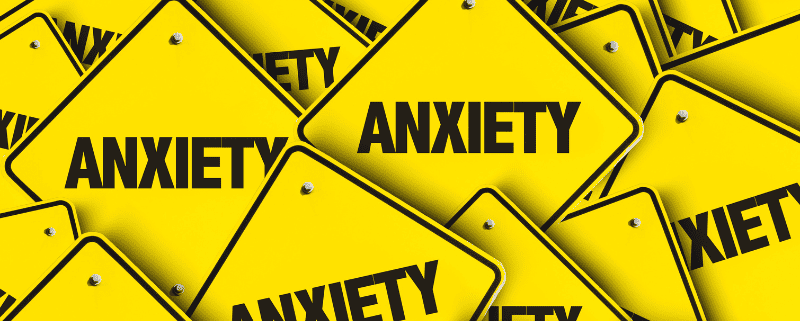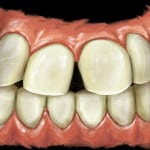Conquering Dental Anxiety: Strategies for Overcoming Your Fears and Embracing Oral Health
Last Updated on July 4, 2023 by Gio Greenard
What’s the secret to good oral health?
- Regular visits to your dental office
- Assessing your oral health
- Mending the trouble spots with your teeth and gums, etc.,
If you want your teeth to be healthy, dazzling, and sparkling, you cannot miss going to the dentist or orthodontist. Unfortunately, for many people, visiting dental offices is not as seamless as it seems.
Do you know, according to research 36% of the population faces dental anxiety when they are asked to visit their local dental office?
Mostly, the fear involves:
– Revealing teeth’s condition
– Extreme consciousness about one’s dental health
– Being uncomfortable with dental appliances
– Choking, etc. Surprisingly, the fear becomes so overpowering that many times people stay in pain rather than visit the dentist/orthodontist.
If you are facing severe dental anxiety like this, you are at the right place. This blog will cover all important nuances relating to dental anxiety: what it is, what causes it, coping mechanisms, and so on. Let’s dive in.
Contents
What Is Dental Anxiety Anyway?
Dental anxiety refers to the feeling of nervousness or fear you have whenever you are asked to go to the dentist/orthodontist. It’s about time we all start talking about this subject. These delays in dental visits can have serious repercussions, especially if you need immediate treatment.
There’s a whole host of reasons that can set off dental anxieties. From the dreaded needles and drills to the clinical dental environment itself, these factors can really get under your skin. And if that anxiety spirals out of control, growing more intense and irrational, you might even find yourself grappling with full-blown dental phobia. According to research by Community dentistry and oral epidemiology, threatening thoughts related to treatment often cause dental anxieties.
Moreover, let’s dive into some of the mental health conditions associated with dental anxiety:
- Generalized anxiety – a constant state of worry and fear
- Post-traumatic stress disorder (PTSD) – triggered by a traumatic experience
- Depression – a mood disorder causing persistent feelings of sadness
- Bipolar disorder – characterized by extreme mood swings
- Schizophrenia – a complex disorder affecting thoughts, feelings, and behavior
Did you know that dental anxiety has a strong connection to psychological distress. In fact, BMC Oral Health’s study supports the relationship between psychological distress and dental anxiety.
Causes Of Dental Anxiety
Here are a few reasons to have dental anxiety. Research by Medical Principles and Practice says dental anxiety stems from:
– Exogenous factors like traumatic experiences from past treatments
– Endogenous factors like personality traits.
In general, the cause mostly includes:
- Traumatic dental or healthcare experience
- Witnessing pain in the head and neck in past treatment sessions
- Generalized depression
- Trust issues
- Agoraphobia (When you feel like you can’t escape)
- Claustrophobia (When you feel suffocated in a confined space)
What Do You Fear Mostly?
Pain
Most of us think that dental visits have to be painful and stressful. This inexplicable fear often leads to unnecessary nervousness. There are many modern-day techniques that are not only non-invasive and painless but also ensure maximum relief.
Loss of Control
Sitting on dental chairs for hours often makes people claustrophobic. Other times, you may feel anxious because you don’t know what your dentist/orthodontist is going to perform on your teeth. This feeling of uncertainty paves the way for dental anxiety.
Feeling Embarrassed About Dental Health
One of the main reasons that keep patients from visiting dental offices is the fear of revealing their dental condition. But this is no solution. A dentist/orthodontist will help you get to the root of the problems and improve your oral health. Also, treatment plans will make sure you get rid of all your dental issues.
Symptoms of Dental Anxiety
- Sweating
- Palpitation or racing heartbeat
- Fainting conditions and high or low blood pressure
- Signs of panic and extreme crying
- Using humor or aggression to cover up the feeling of anxiety
- Withdrawal
How Does Dental Anxiety Affect Your Health?
Don’t let your nerves keep you away from the dentist or orthodontist! Ignoring dental issues can lead to bigger problems that go unnoticed until they require emergency care and complex treatments.
According to a study by BMC Oral Health, there’s a vicious cycle between dental anxiety, avoiding proper oral care, and facing the consequences of neglected oral health.
But fear not, overcoming dental anxiety isn’t as difficult as it seems. By committing to regular dental check-ups and teeth cleanings, you can not only conquer your fear but also:
- Reduce the risk of dental diseases
- Identify problems early on
Remember, most dental issues can be prevented and treated by simply adjusting your daily habits. By avoiding dental visits, you’re setting yourself up for more complicated treatments and missing the opportunity to establish a healthy oral care routine.
Recommended Coping Mechanisms For Dental Anxiety
Be Clear About Your Fears With The Dental Office
Be transparent with your dentist/orthodontist. Open up to them. Let them know about your concerns and fears so they will know how to proceed with the treatment. Also, your doctor will explain the entire procedure before diving headlong so you would know what to expect. They will also suggest tips and tricks to calm you down so you feel comfortable.
Breathing Exercises
Not just for dental anxiety, deep breathing exercises are the best way to relax your mind. Close your eyes. Slowly inhale through your nose. Hold it for a few seconds. Slowly breathe out through your mouth. Repeat it a few times or till the time you feel calmer.
Muscle Relaxation And Meditation
Anxiety can escalate to an infinite level, especially when sitting in the waiting area. You may feel nauseous and nervous until you reach the dental room. So, try the techniques for muscle relaxation and meditate. Ensure you are trying to reach the heightened stage of awareness and focus. To do this, focus on an object. Close your eyes. Take a deep breath and loosen your muscles. Release all the tension from your body and concentrate on the good things.
Imagery
Visualize happy thoughts before entering the doctors office. Go to your happy place, and think about good memories or moments of peace. Being nostalgic often relaxes the mind and muscles.
Distraction
Search for distractions when you are in the dental office. Talk to your doctor before you go. See if you can ask someone in the clinic to switch on the TV or a movie during your visit. Or you can also carry earphones and listen to music.
Bring Someone With You
Having someone beside you can calm your mind. Ask the clinic if you can bring companions with you. Their presence can make you feel relaxed and comfortable.
Anxiety Relieving Medication
Conscious Sedation
This medication involves taking an oral sedative before your dental visit. This is not like normal anesthesia. So it will not make you go dizzy. You will be conscious and responsive but in a relaxed condition.
General Anesthesia
We are talking about normal surgical anesthesia here. You may be fully unconscious or asleep. Dental anesthesia is mostly used by hospitals and applied by an expert anesthesiologist. For a local office, your doctor must have specialized training.
Analgesia
This medication helps reduce the pain. These are over-the-counter drugs but still must be used under the supervision of your doctor.
But remember, never take these medicines unless your doctor recommends them. Discuss with your doctor first what is the best fit for your treatment, and bring someone with you if you are going for anesthesia.
Conclusion
This blog has covered everything you would need to know about dental anxiety. You have learned what dental anxiety is, its causes, symptoms, and effects on your health. Apart from that, we have also delved into some of the common coping mechanisms.
But don’t let this fear elevate into anxiety and phobia, so much so that you start ignoring the problems rather than visiting your dentist/orthodontist. Moreover, ignoring your oral issues can lead to serious issues and further unwanted complications. So talk to your orthodontist. Be clear about your fears. And let them figure out the best treatment plans that give you the least anxiety while ensuring the best and fastest cure.

Dr Patti Panucci attended the University of Louisville School of Dentistry for four years, where she graduated with a DMD degree (May 2000) among the Top 10 in her class. Following that, she headed west to Los Angeles to complete her three-year residency at one of the top-ranked orthodontic programs in the country – the University of Southern California.
Along with her certificate in orthodontics, Dr. Panucci earned a master’s degree in craniofacial biology. During those three years, she fell in love with Southern California beach life and decided that this was where her future lay.





Leave a Reply
Want to join the discussion?Feel free to contribute!